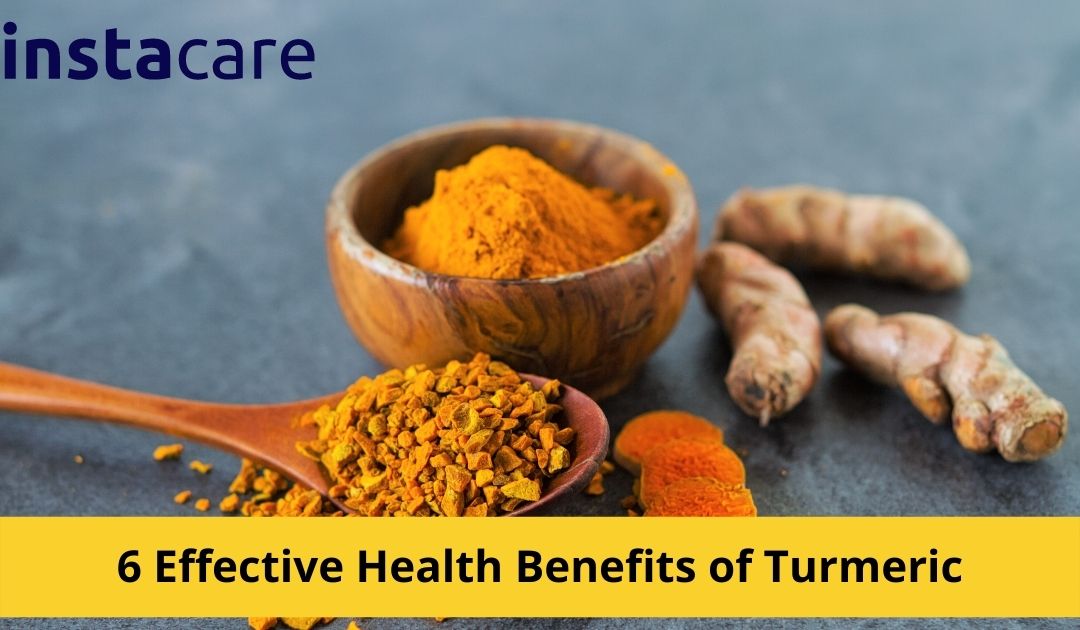This yellow spice, akin to ginger, is renowned in Indian, Southeast Asian, and Middle Eastern cuisine. It has been used for millennia as medicine in regions like India to cure concerns, including respiratory disorders. Turmeric has recently been promoted as a superfood capable of fighting cancer and alleviating depression, among other things. While Turmeric adds golden colour to meals, it also has anti-inflammatory effects that assist your health. Curcumin is the main active component. Turmeric gets its yellowish colour from curcumin. The benefits of curcumin are Turmeric's treasure. Curcumin offers antioxidant and anti-inflammatory capabilities. Researchers are investigating whether it can assist disorders characterized by inflammation, such as arthritis and ulcerative colitis.
Turmeric Includes Bioactive Chemicals that are Therapeutic
However, Turmeric's curcumin concentration isn't exceptionally high. It is around 3% by weight. Most trials on this herb have used turmeric extracts containing mainly curcumin, with dosages typically exceeding 1 gramme per day. It would be difficult to get these levels simply by adding Turmeric as a spice to your cuisine. That is why some people prefer to take supplements. Curcumin, on the other hand, has a low absorption rate into circulation. Curcumin's bioavailability must be improved to reap its full benefits. Curcumin has both antibacterial and anti-inflammation properties. Piperine is a naturally occurring molecule that boosts curcumin absorption by 2,000%.
View More: 6 Amazing Green Tea Benefits
The most excellent curcumin pills contain Piperine, making them significantly more effective. Curcumin is also fat-soluble, meaning it dissolves and degrades in fat or oil. C consequently, combining curcumin tablets with a high-fat diet may be advantageous.
Diabetes Type 2
Curcumin may be effective in preventing or treating type 2 diabetes because it can help reduce inflammation and stabilize blood sugar levels. One study examined 240 persons with prediabetes for nine months and discovered that taking a curcumin supplement reduced their chances of getting diabetes. Research is underway. However, most research has been conducted on animals rather than humans.
Decreases inflammation
Turmeric may be suitable for chronic illnesses where inflammation begins to impair tissues in your body. In one trial of ulcerative colitis patients, those who took 2 grammes of curcumin per day combined with prescription medication were more likely to remain in remission than those who took the treatment alone. It may not help during an active flare-up but may help prolong recovery.
Strengthens Cognitive Development
Another research experiment found that taking 90 milligrams of curcumin twice a day for 18 months improved memory skills in persons who did not have dementia. Researchers hypothesized that the reduction in brain inflammation and the antioxidant qualities of curcumin resulted in less deterioration in neurocognition, or the ability to think and reason. Curcumin may also play a role in preventing Alzheimer's disease, but more research is needed in this area.
Prevents Infections Caused by Viruses
Try a cup of turmeric tea if you're feeling unwell. There are many turmeric tea benefits. Curcumin may aid in the battle against viruses such as herpes and the flu. However, most of this research was conducted in a laboratory rather than on humans. Remember that Turmeric contains just approximately 3% curcumin, and your body does not absorb curcumin well, so a cup of tea now and then will not suffice.
View More: Tukh Malanga Benefits for Your Health
Curcumin May Lower Your Chances of Cardiovascular Disease
The leading cause of mortality globally is cardiovascular disease. Researchers have been studying it for decades and have learned much about why it occurs. Unsurprisingly, heart disease is quite intricate, with numerous factors contributing to it. Many steps in the heart disease process may be reversed by curcumin. Curcumin may have the most significant benefit for heart disease by increasing the function of the endothelium, the lining of your blood vessels. Endothelial dysfunction is an essential contributor to heart disease. This occurs when your endothelium cannot control blood pressure, clotting, and other issues. Several research indicates that curcumin can benefit heart health.
Furthermore, one study indicated that it is just as helpful as an exercise in postmenopausal women. Curcumin can also help reduce inflammation and oxidation, which can contribute to heart disease. In one trial, researchers gave 121 participants undergoing coronary artery bypass surgery either a placebo or 4 grammes of curcumin daily for a few days before and after the surgery. The turmeric category had a 66% decreased risk of suffering a heart attack in the hospital.
Conclusion
Turmeric, particularly its most active ingredient, curcumin, has numerous scientifically proven health advantages, including the ability to boost heart health and prevent Alzheimer's and cancer.
It has anti-inflammatory and antioxidant properties. This might also alleviate symptoms of depression and arthritis.
Please book an appointment with the best Nutritionist in Lahore, Karachi, Islamabad, and all major cities of Pakistan through InstaCare, or call our helpline at 03100002273 to find a verified doctor for your disease.











